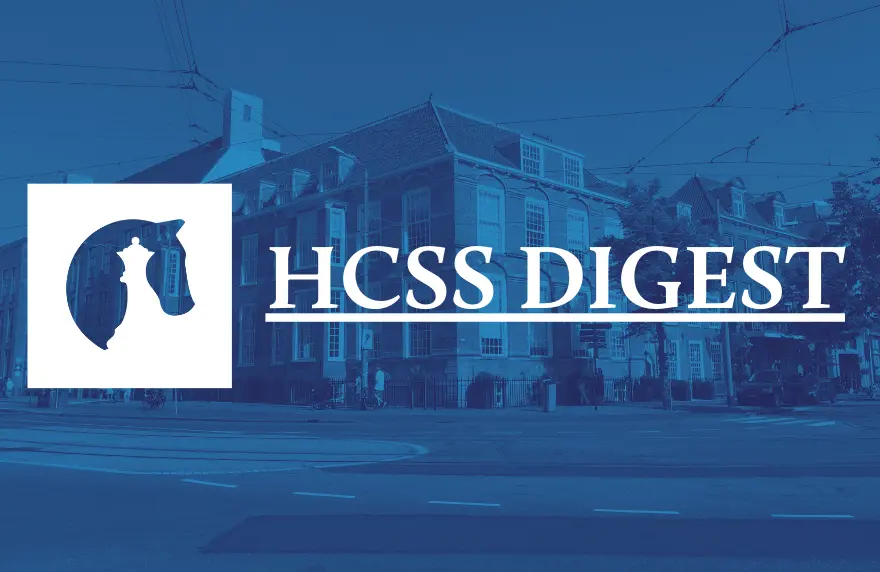What does effective deterrence look like in the 21st Century? How can the Netherlands expand its footprint in space? And what does a future proof Dutch special operations force look like? Find out after the break, in your new HCSS Digest!
Missed the online Expert Session on the importance of space for the Netherlands organized by HCSS on July 1st? Watch it now on our website! More than 50 experts, politicians and representatives of the Dutch space industry took part in this webinar moderated by Tim Sweijs and featuring strategic analyst Hugo van Manen, author of the recent Strategic Alert: Towards a Space Security Strategy.
In an environment where states increasingly make use of grey zone operations, special operations forces form an ideal unit to conduct the kind of activities that straddle the line between peace and (overt) war. The latest HCSS report by Rob de Wijk, Frank Bekkers, Tim Sweijs, Stephan De Spiegeleire, Dorith Kool and contributions by Max Sarel delves into what is necessary for a future proof Dutch special operations force.
HCSS strategic analyst Lotje Boswinkel published an article in International Affairs last week, the No. 1 ranked academic journal of international relations, together with Florence Gaub, Deputy Director of the EU Institute for Security Studies (EUISS). In “How the Gulf States are using their air space to assert their sovereignty”, Gaub and Boswinkel challenge the assertion that the Gulf States are lacking sovereignty.
A credible and robust deterrent capacity helps prevent war, especially in a time when international relations are highly polarized. But what does effective deterrence look like in the 21st Century? Listen to the new episode of our BNR Nieuwsradio podcast De Strateeg with HCSS director of research Dr. Tim Sweijs and Air Commodore Dr. Frans Osinga, Faculty of Military Sciences of the Netherlands Defence Academy, and Special Chair in War Studies (sponsored by the KVBK – the Royal Society for War Studies) at ISGA of Leiden University.
Osinga and Sweijs recently compiled the book boek ‘Deterrence in the 21st Century: Insights from Theory and Practice’, in which experts from around the world describe the most pressing strategic challenges and new military strategies.
HCSS and the Global Commission on the Stability of Cyberspace (GCSC) are pleased to announce the first Cyberstability Paper Series. This series explores the “New Conditions and Constellations in Cyber” through 12 papers from leading experts published from July until December 2021. The first 2 articles were launched this week:
- “The problem for cyber deterrence is not whether it works at all, but whether it can be expanded to work against a broader set of cyber activities and how to identify the activities that we want to deter,” writes Michael Daniel, CEO of the Cyber Threat Alliance and Former Cybersecurity Coordinator US National Security Council, in Closing the Gap: Expanding Cyber Deterrence.
- Xu Peixi, Professor at the Communication University of China, offers a Chinese Perspective on the Future Cyberspace. He argues that China’s worldview about cyberspace is reflected in its Confucian and Taoist traditions, recommends a transnational and pluralistic approach to cyberspace, and offers an analysis of several norms.
Against a background of mounting tensions between the West, Russia and China, the space powers are arming themselves, the new target being the satellite networks that have become indispensable for civilian, scientific and military purposes. “A new arms race is underway,” says HCSS analyst Patrick Bolder in an interview for NRC: “if you are so dependent on resources positioned in space, those resources automatically become a target again”.
The Dutch vision of the nitrogen crisis currently seems to be getting no further than more windmills and fewer cows, Rob de Wijk comments in his column in Trouw. But an incoherent national short-term policy will hit the Netherlands hard as an agricultural nation.
From the declining role of coal, to the rapidly increasing demand for gas in Asia, HCSS energy specialist Jilles van den Beukel explains the 5 reasons for the huge increase in gas prices in this article for IEX.
Job Opportunity: the HCSS Datalab is looking for a talented Web Developer. The vacancy is an opportunity to collaborate in developing our production-grade, data-driven policy systems, products, and solutions.
Internship Opportunity: Only a few more days left to apply… HCSS is looking for an enthusiastic PR, Marketing & Communications intern, to start August 2nd. Are you a social media whiz kid? Do you have a sharp pen? Or do you like creating your own video’s and podcasts? Then you could be the PR & Communications intern we’re looking for!



